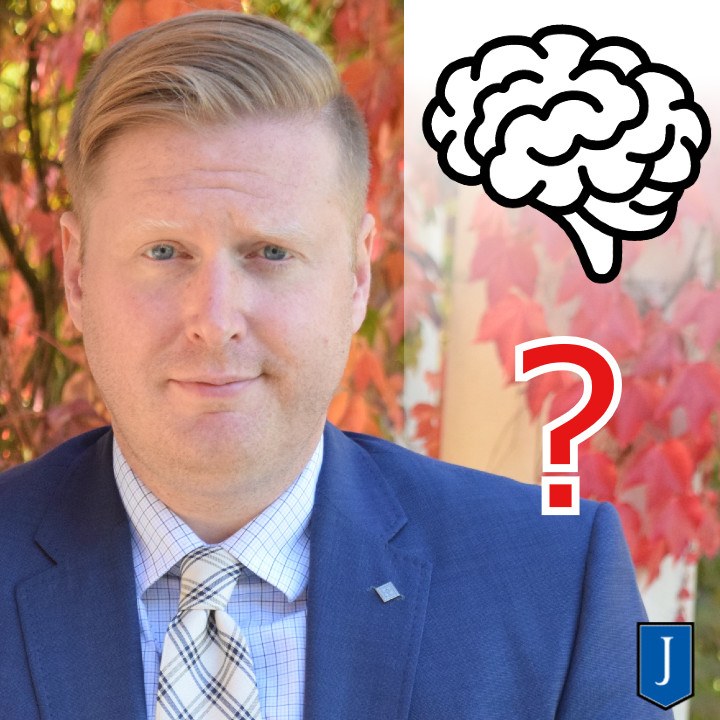Oregon Brain Injury Lawyer
In today's post we are answering the most common questions we get about brain injuries in Oregon. This is our Oregon Brain Injury Lawyer FAQ. We also have more information about brain injury law here.
Note: Johnson Law, P.C. is a law firm. Please talk to a healthcare provider for diagnosis and treatment options. We are not able to advise specific treatment options or provide medical advice. We aim to inform people about their legal rights regarding brain injury claims.
Traumatic brain injuries change lives. One of the most devastating injuries a person can suffer is a traumatic brain injury (TBI). A TBI occurs when a person suffers trauma to the head. The trauma is severe enough to do actual damage to the brain itself.
For example, someone is in a car accident and hits their head on the dashboard. Externally the face may appear uninjured or just bruised. Internally, the hit causes the brain to bounce around against the skull. This causes a traumatic brain injury.

TBI Life-Long Effects
Brain injuries can have life-long effects. As such, an Oregon personal injury lawyer can be very helpful. This is because an attorney will carefully examine your case. For example, this involves looking at all financial claims you may have and evaluating the damages. Every case is unique and we want to hear your story.
Don't leave money on the table. We will look into both economic and non-economic damages. This way, you can be sure any settlement or verdict covers your injuries for the rest of your life.
Getting Help From An Oregon Brain Injury Lawyer
Talking to a lawyer is free and easy. Learn your options. Get the help you need. Maximize your recovery.
Read on to learn more or call us now (971-205-3266) for a free consultation.
What Are The Effects of Traumatic Brain Injury
Brain injuries are deceiving. Unlike broken bones or other dramatic injuries, the effects are not visible to the naked eye. Even the injured person may think they have escaped serious injury. Sometimes it takes days or weeks to realize that things are not right.
When a person suffers a TBI, they may suffer from:
- Seizures (especially in the week or so after the injury)
- Depression
- Anxiety
- Memory problems
How Do I Know If I Have A Traumatic Brain Injury?
The best way to know if you have a traumatic brain injury is to meet with a neurologist. Moreover, talk to them about your injury and symptoms. Subsequently, diagnostic imaging may be able to prove you have a TBI. However, imaging is most useful soon after an accident. As such, don't delay your treatment unnecessarily.
For more general information on the symptoms, diagnosis, and treatment visit Mayo Clinic's resources.
Can you have a TBI and not know it?
Yes you can have a TBI and not know it. This is because a "Minor" TBI may have symptoms that you attribute to other causes. For example, after an accident, you are usually in pain from other injuries, on some type of medication, and stressed out by insurance companies. All of these things can mask a brain injury.
Is A Concussion A Traumatic Brain Injury?
Yes, a concussion is a traumatic brain injury. However, a concussion may be referred to as a moderate or mild traumatic brain injury. This is because what makes concussions "moderate" or "mild" TBIs is that concussions usually do not threaten your life or affect daily life long-term. So as you can see a concussion is relatively minor compared to a head injury that causes death.
However, a concussion is still a serious injury. This is for a few reasons. Firstly, your brain has been damaged if you have had a concussion. That is part of what it means to be a traumatic brain injury. Even if recovery is quick and seems complete, real permanent damage was done. Secondly, even the smallest of concussions add up over time. For example, this is the issue the NFL is facing with many of its players. Look into CTE for more info. Finally, a concussion itself puts the brain in a more fragile state. Subsequent injury is much more likely after an initial concussion.
Concussion Signs and Symptoms
Concussions are serious injuries. Some football coaches and insurance adjusters may argue otherwise. However, the Center For Disease Control is definitive. Concussions are a serious public safety concern.
You should know that a medical professional is needed to officially diagnose a concussion. However, here are some of the things the CDC states to look for when evaluating a potential concussion for sports injuries in other people.
Concussion Signs Observed
- Can’t recall events prior to or after a hit or fall.
- Appears dazed or stunned.
- Forgets an instruction, is confused about an assignment or position, or is unsure of the game, score, or opponent.
- Moves clumsily.
- Answers questions slowly.
- Loses consciousness (even briefly).
- Shows mood, behavior, or personality changes.
Concussion Symptoms Reported
- Headache or “pressure” in head.
- Nausea or vomiting.
- Balance problems or dizziness, or double or blurry vision.
- Bothered by light or noise.
- Feeling sluggish, hazy, foggy, or groggy.
- Confusion, or concentration or memory problems.
- Just not “feeling right,” or “feeling down”.
What is the average settlement for a TBI?
How much is a brain injury case worth? A brain injury case is worth thousands to millions of dollars. The average settlement depends largely on answering three questions: First, how severe are the injuries? Second, what insurance is involved? Third, who is liable and to what extent?
A traumatic brain injury lawyer helps a judge, jury, or insurance adjuster understand the complexity of brain injuries. This is partially done by carefully explaining to the jury, insurance adjuster, or judge how these catastrophic injuries have impacted a person. Even if the injuries aren’t apparent to the naked eye, there are ways to show the damage caused.
How do you prove brain damage?
You can prove brain damage by using medical imaging. A CT scan or MRI can show bleeding in the brain (hemorrhage), blood clotting (hematoma), bruised tissue, and brain swelling. Imaging often needs to be done soon after an injury to prove there has been brain damage. However, most people don't get the needed imaging done right after an accident.
Brain injuries are also diagnosed using the Glasgow Coma Scale. This is how a doctor assesses the initial severity of a brain injury. They check a person's ability to follow directions and move their eyes and limbs. Also, they pay attention to how coherent a patient's speech is.
Proving the severity of a brain injury is difficult. That is why hiring a brain injury lawyer may be the right call. Call us if you're worried about proving your brain injury.
Is traumatic brain injury permanent?
Damage to the cells of the brain from a traumatic brain injury is permanent. Damaged brain cells cannot regenerate or repair themselves.
However, a traumatic brain injury's symptoms are not necessarily permanent. This is because the brain can kind of rewire itself to regain some lost function. As such, healthy brain cells can do some of the work of the damaged ones. This means functional recovery is possible in many cases.
Unfortunately, traumatic brain injury can also get worse. During the recovery process, some people will present signs of decline. Insurance companies sometimes expect this. They then offer to settle the matter quickly. This prevents innocent people from receiving fair compensation.
Helping You Recover - Oregon Brain Injury Lawyer
At Johnson Law, we have helped many clients who have suffered traumatic brain injuries get the compensation they deserve. We aggressively fight for our clients. We work to make sure that these injuries are treated seriously. You should be fully compensated for the damages you have suffered.
If you have suffered a traumatic brain injury due to the negligence of another, contact us. For a free consultation, you can talk to a traumatic brain injury lawyer at Johnson Law today.
We will review your case for free.
Pay us nothing unless we get you a better settlement.
We work on contingency.

